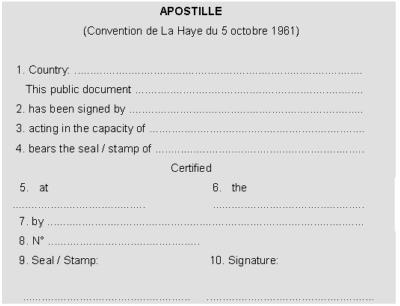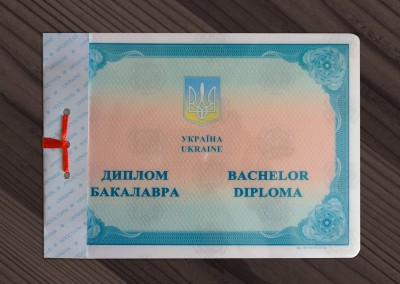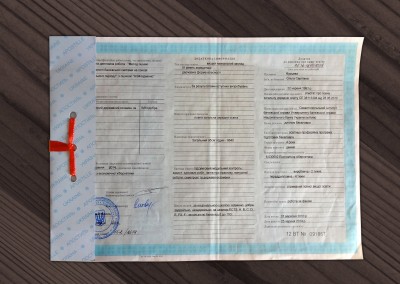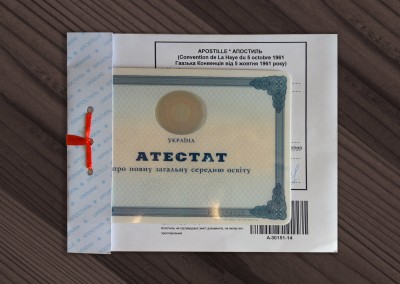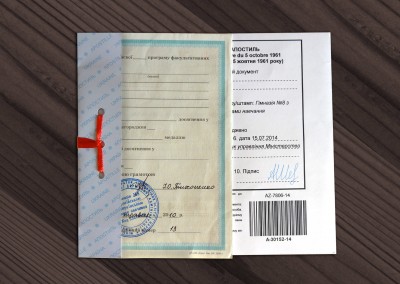Apostille
Apostille is a certification provided under the Hague Convention of 1961 for authenticating documents for use in countries which signed the Hague Treaty. Apostille is used instead of consular authentication and is given in the form of a stamp put on documents issued in one country to be used in foreign countries. Apostille can only be obtained in the country the authenticated document has been issued. Apostille certifies authenticity of a stamp on the document and the position of a person who signed it. It authenticates original documents or notarised copies. Apostille is accepted in the countries that have signed the Hague Treaty. List of the countries that are parties to the Hague Convention:
Albania, Andorra, Argentina, Armenia, Australia, Austria, Azerbaijan, Belarus, Belize, Belgium, Bosnia and Herzegovina, Bulgaria, Canada, Chile, People’s Republic of China, Columbia, Costa Rica, Croatia, Cyprus, Czech Republic, Denmark, Ecuador, Egypt, Estonia, Finland, France, Georgia, Germany, Greece, Hungary, Honduras, Iceland, India, Ireland, Israel, Italy, Japan, Jordan, Latvia, Lithuania, Luxembourg, Malaysia, Malta, Mauritius, Mexico, Moldavia, Monaco, Montenegro, Morocco, Netherlands, New Zealand, Norway, Panama, Paraguay, Peru, Philippines, Poland, Portugal, Romania, Russian Federation, Serbia, Singapore, Slovakia, Slovenia, South Africa, Spain, Sri Lanka, Suriname, Sweden, Switzerland, The former Yugoslav Republic of Macedonia, Tunisia, Turkey, Ukraine, United Kingdom of Great Britain and Northern Ireland, United States of America, Uruguay, Venezuela, Viet Nam, Zambia
